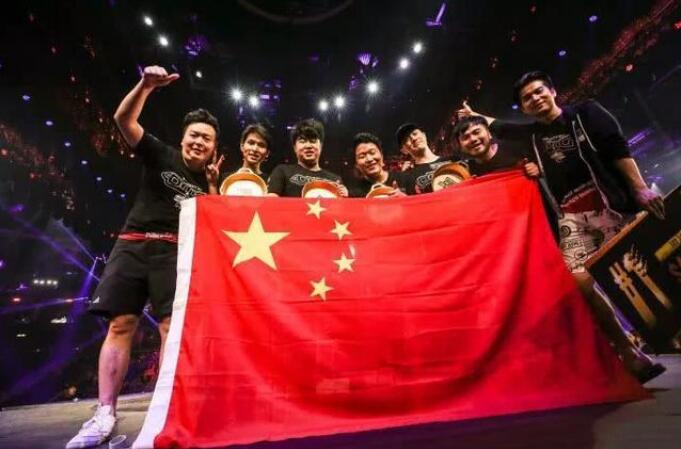China's e-sports national team unlocks potential
- By Zhang Rui
 0 Comment(s)
0 Comment(s) Print
Print E-mail China.org.cn, August 1, 2018
E-mail China.org.cn, August 1, 2018

The notice issued by the administration on July 24 said it will hold the 2018 National Electronic Sports Open (NESO) in December in Chengdu, Sichuan province.
It is not only a significant part of China's e-sports development strategy but also an important event to promote a culture of e-sports. Players will compete in four games "League of Legends (LOL)," "Hearthstone," "Starcraft II: Wings of Liberty" and "PlayerUnknown's Battlegrounds (PUBG)."
The total prize money for the winners of the final will be 890,000 yuan (US$130,600), while the champion and the runner-up will each qualify to join the national team for training.
The Chinese e-sports national team entered the race in Jakarta, Indonesia for three gaming competitions, "League of Legends," "Clash Royale" and "Arena of Valor," out of a total of six games included for the first time in the 2018 Asian Games which will be held from Aug. 18 to Sept. 2. E-sports will be official non-medal demonstration sport at the multi-sport event.
A national e-sports team is not new in China. As early as March 2013, a national team was established by the General Administration of Sport.
China's e-sports market is expected to exceed 88 billion yuan (about US$13 billion) in 2018 and increase by another 35 billion yuan in the next two years, according to a report by analyst CNG. The report also finds that the number of Chinese e-sports players has been growing at an annual average of over 20 percent over the last three years and will exceed 430 million in 2018.
"China started to select the best of the bests from various e-sports clubs to form a national team this year, which demonstrates that the government is paying more attention to this industry," Li You, a veteran industry insider, told China.org.cn. "But the future results remain to be seen, because this kind of national team is more like an all-star team of China for demonstration purposes. The best players were picked and put together, though, this may not produce the best outcome, because they may not have enough time to play and work together to develop smooth and tacit cooperation."
It has been 32 years since the inception of electronic sports in 1986. In 1995, internet cafes started to emerge in China, pushing forward the development of online and video games. The Chinese government took a supportive stance toward e-sports, hoping to facilitate the development of the Information Technology (IT) industry and boost the economy. In 2003, the General Administration of Sport of China listed e-sports as one of 99 officially recognized sports.
While e-sports is booming in China and gaming giants are making bumper profits, many traditional-minded Chinese parents still perceive them as a bad profession and a source of gaming or internet addiction. While many e-sport gamers feel that they are a marginalized group in society who suffer from bias, criticism and misunderstanding despite having fancy egos and avatars in the vivid virtual world.
According to the notice, NESO is organized by the Sports Information Center under the General Administration of Sport and Shanghai-based NEOTV.






Go to Forum >>0 Comment(s)